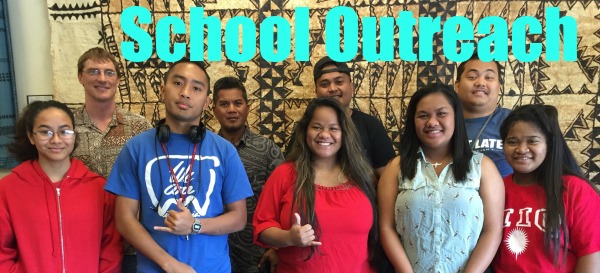Great news!!! On February 16, 2016 the Hawai’i State Board of Education unanimously adopted BOE policy 105.14, Multilingualism for Equitable Education. This marks the state’s commitment to and recognition of all the languages spoken by students in the State of Hawai’i. It’s great news for those of us who support indigenous education of which the perpetuation of languages is a foundation.

Now, when our Outreach Team visits schools in Hawai’i to speak with the teachers and inspire the kids, they can also proudly encourage kids to learn their respective languages as an important element of their education.
I am proud to have joined so many educators, leaders, and supporters of multilingualism who submitted testimonials to the Student Achievement Committee of the Board of Education to help in their deliberation.
Excerpt from the BOE policy 105.4:
All cultures and languages are valuable resources to learn and live in Hawaiʻi and our global community. Multilingualism creates learning environments that draw from the rich linguistic diversity and cultural strengths of Hawaii’s students. The Board of Education recognizes the important role of multilingualism in providing a meaningful and equitable education for student achievement.
The Department shall strive to meet the following goals of this policy:
- provide a range of language program(s) for multilingual students, which include students identified as English Learners (EL) and students who want to learn an additional language;
- provide effective educators with appropriate knowledge, skills, and instructional materials; and
- provide outreach supports to families to become actively engaged in their children’s education.
To promote partnerships that support the implementation of this policy, the Department shall establish a permanent advisory committee made up of diverse stakeholders, including family members, community leaders, multilingual speakers, educational experts, school practitioners and administrators.
The Department shall provide an annual report on the implementation of this policy to the Board.
The Department shall seek the necessary funds to implement this policy, but nothing in this policy shall require the expenditure of funds in excess of what is appropriated to the Department.
The Department shall comply with all state and federal laws related to language in education, but nothing in this policy shall confer any rights or obligations to students, parents, employees or other persons, beyond those provided for by law.
Rationale: Research shows when students’ identities, histories, cultures, and languages are included in a meaningful and equitable education, they are better able to learn academic content and the official language medium of education, be it English or Hawaiian.
Download the BOE Policy 105.14>>
Download my testimony for BOE Policy 105.14>>



